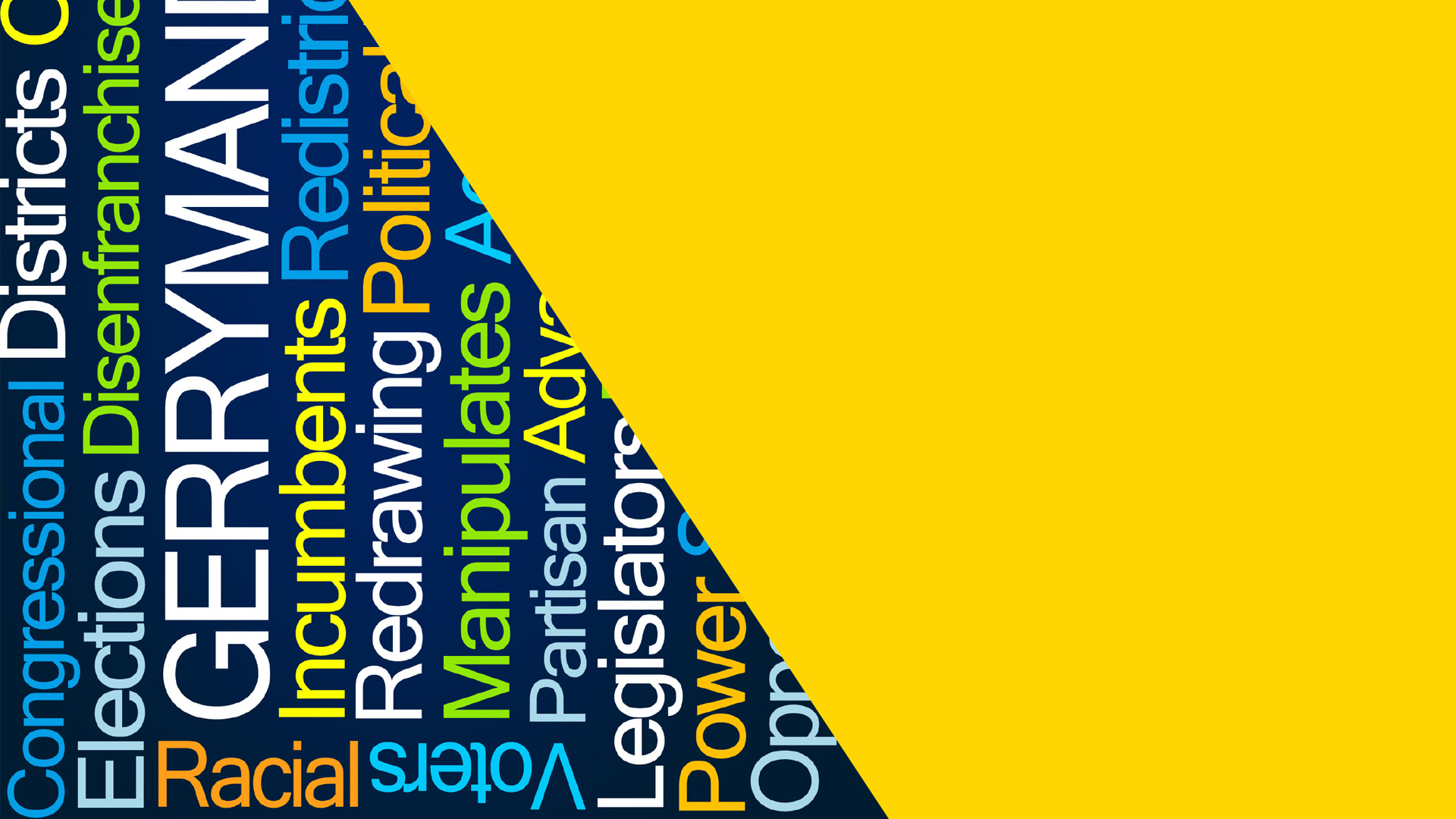Means for Black America
is the second topic in the Project 21 series:
“What It Means for Black America”
Project 21 is a division of the NATIONAL CENTER FOR PUBLIC POLICY RESEARCH, a non-profit, non-partisan educational foundation based in Washington, D.C.
PROJECT 21 • WHO WE ARE
Project 21 is an initiative of the National Center for Public Policy Research launched in 1992 to promote conservative and libertarian black leaders in the media so that news coverage better reflects the true diversity of thought within the black community.
Project 21 members have been interviewed over 50,000 times — currently averaging more than two television interviews each day — appearing on FNC, CNN, C-SPAN, MSNBC, NewsMax and OANN. In addition, Project 21 members are interviewed on radio an average of nearly 1.5 times per day and have appeared on major radio stations and shows such as the Rush Limbaugh Show, Sean Hannity and Jim Bohannon. Members are also frequently published and quoted in newspapers, including the New York Times, Wall Street Journal, Washington Post, Washington Times, Detroit News, Houston Chronicle and many others.
Project 21 members come from all walks of life and from all over the country. Its membership includes members of the clergy, business leaders, entertainers, athletes, economists, journalists, attorneys and students.
What Project 21 members have in common is a desire to make America a better place for black Americans — and all Americans — to live and work.
They do so not only by writing op-eds and participating in radio and TV interviews on the most important issues of the day, but also by advancing a positive vision for improving the lives of black Americans. Project 21 publishes the “Blueprint for a Better Deal,” a series of publications offering specific policy recommendations for helping black America reach its full potential. Notably these recommendations build on key aspects of Americanism — free enterprise, personal responsibility and limited government — and consequently would result in benefits for the country, not just blacks. It also publishes the “What it Means for Black America” series of monographs that assess policy initiatives for their specific impact on people of color.
Project 21 members also give speeches before student, community, business and religious groups; testify before Congress and other government bodies; advise policymakers at the national, state and local level and file public comments on federal rulemakings.
PROJECT 21 • LEADERSHIP
CO-CHAIRMEN
HORACE COOPER
In addition to co-chairing Project 21, Horace Cooper is a senior fellow and member of the board of directors of the National Center for Public Policy Research. He previously served as deputy director of Voice of America, chief of staff at the U.S. Department of Labor and was a senior aide to the leadership of the U.S. House of Representatives. He also taught constitutional law at George Mason University School of Law. He is the author of “How Trump is Making Black America Great Again.” He appears regularly on the Fox News Channel and talk radio shows across the nation as a legal and political commentator.

DONNA JACKSON
As Project 21’s Director of Membership Development, Donna is also a seasoned accountant with public and private sector experience as well as previous forays into politics and ministry. She earned a Bachelor of Accountancy (cum laude) from the California State University San Marcos, and has worked in accounting, auditing and management roles with major companies such as Ernst & Young and Marriott International before serving in the public sector as a deputy controller for the Export-Import Bank of the United States. Prior to her career in accounting, Donna was a political operative in the state of Arkansas, where she worked on campaigns for Governor Mike Huckabee, Senator Tim Hutchinson and Representative (now Governor) Asa Hutchinson. Donna is a regular op-ed contributor and frequent guest on Fox News Channel, Newsmax and OAN.

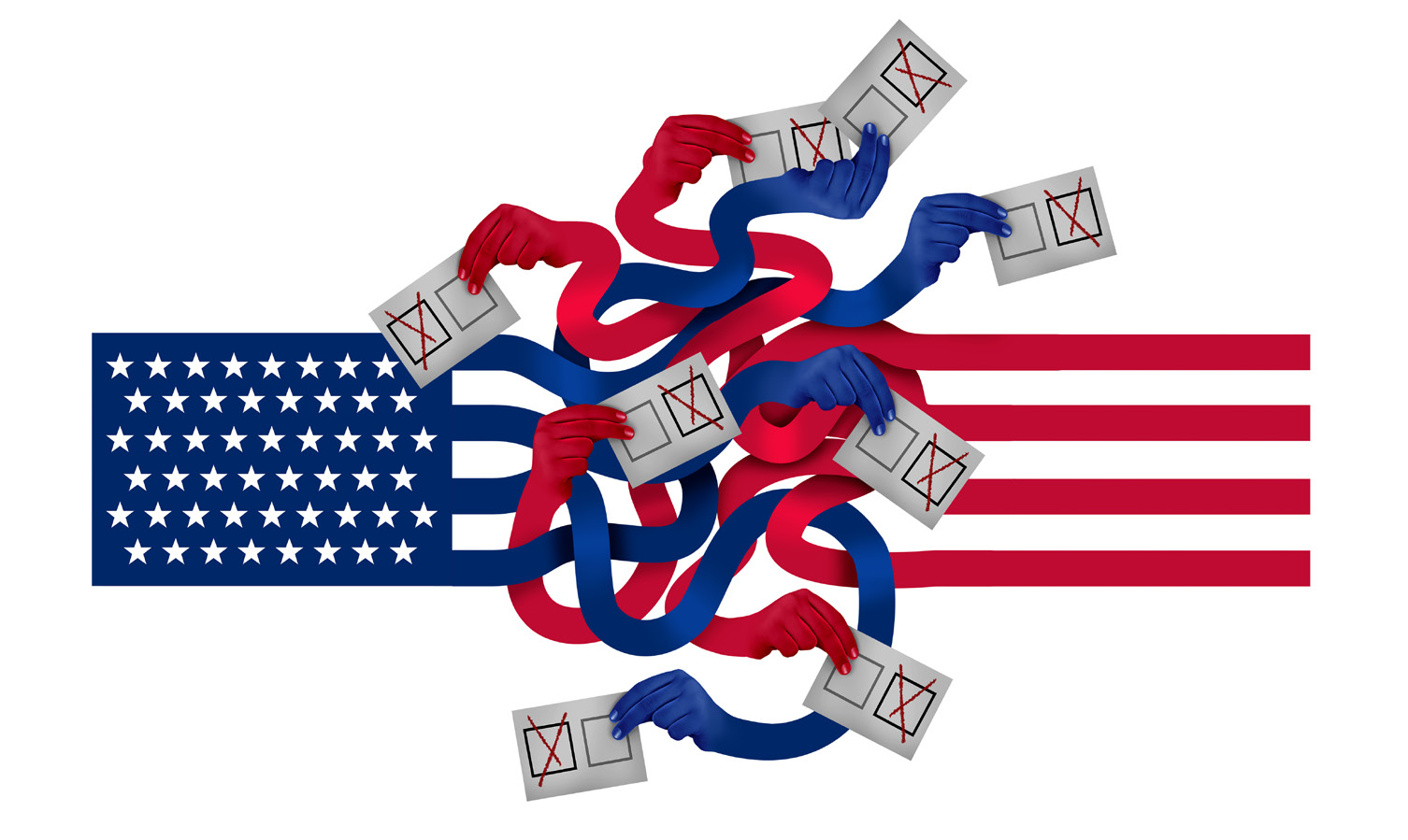
Election Integrity Denied:
Federal Voting “Reforms” Would Empower Elites, Not the Disenfranchised
“High-minded words” in the hands of the powerful are used “to deceive us, and lead us by easy routes to the sacrifice of our own interests and dignity in the service of the mighty,” warned James Burnham in his 1943 masterpiece The Machiavellians.1
As a former Marxist and member of the Socialist Workers Party, Burnham was well-versed in matters involving deceit, and his firm grasp of history led him to understand that — as Edward Welsch has paraphrased — “all societies are run by and for the benefit of their elites.”2
Burnham understood that the primary goal of every ruling class involves maintaining and expanding power and, to that end, passionate professions of noble intentions have often been used as props to hide the most self-serving of agendas.
Complaints about so-called “voter suppression” in our modern-day American electoral process bring to mind these wise lessons from Burnham.
Rep. John Sarbanes (D-Md.), extolling the virtues of legislation introduced in the U.S. Congress to address purported injustices, described the “For the People Act” (H.R. 1) as “a transformative anti-corruption and clean election package.”3
Common Cause called the bill “the boldest democracy reform since Watergate. It’s a massive overhaul of money-in-politics, voting and ethics laws — all to make our democracy more inclusive.”4
According to these supporters of the For the People Act and similar measures, the transformation and federalization of American voting procedures will rid the system of unsavory, democracy-crushing practices that disproportionately hurt the already disadvantaged. And the hundreds of state-level election integrity reforms that have been proposed nationwide are thus a threat to their federalist agenda.
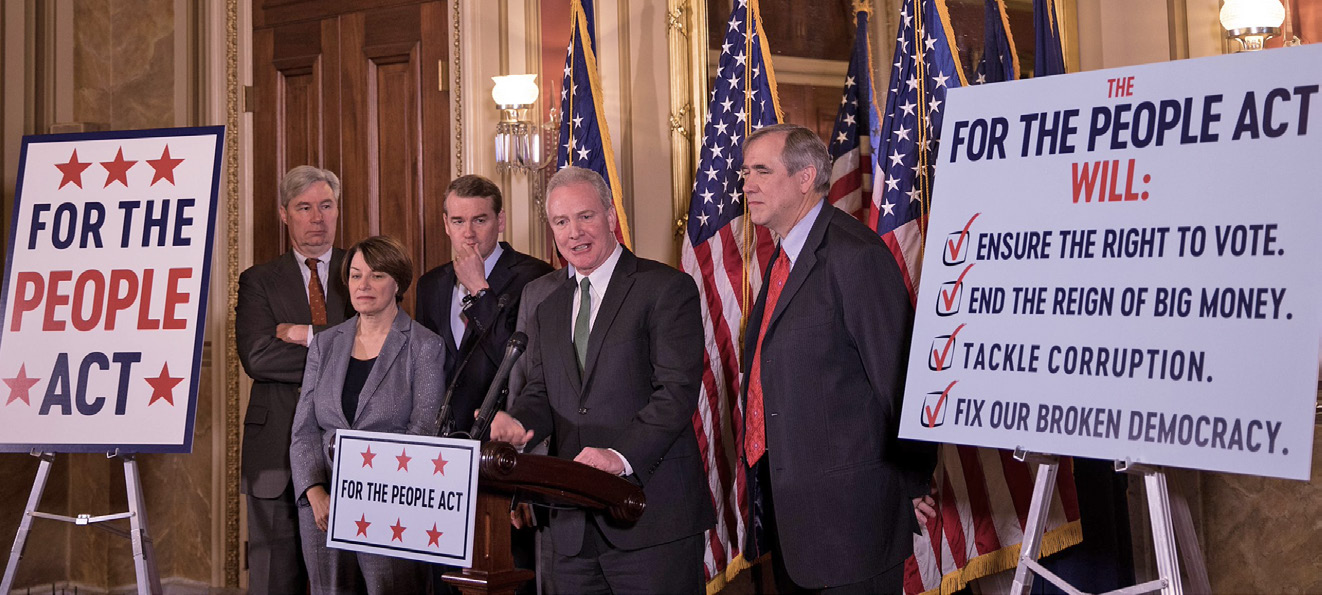
“To date, more than 360 bills to restrict voting access have been introduced in 47 states,” the Brennan Center for Justice ominously and deceitfully warned last year. “These measures target and will disproportionately harm voters of color, young voters and voters with disabilities.”5 Going even further, President Joe Biden derided these state voting laws are “Jim Crow on steroids.”6
But what do the election reform bills recently adopted by a slew of states actually do? And what would be the consequences of overriding them through federal legislation, such as the For the People Act and likeminded measures?
In 2021, 19 states enacted election integrity measures, including laws to require voter identification (voter ID), curb the controversial practice of ballot harvesting and remove the names of the deceased and other ineligible people from the registration rolls.
Of the many election reform bills that have been enacted, two — in Texas and Georgia — have garnered the most attention and warrant a fuller discussion.
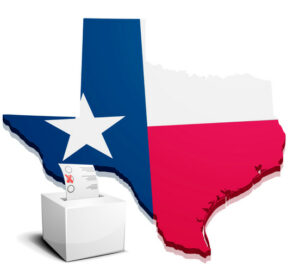
Texas’s election integrity bill, Senate Bill 1, was signed into law by Governor Greg Abbott (R) on September 7, 2021, but only after Democratic lawmakers had fled the state in a dramatic, if doomed, effort to deny a quorum in the legislature.
The new law addresses two key areas in the voting process: access to the ballot box and securing voting procedures. Concerning access to the ballot box, the new law:
• Adds voter ID provisions for mail-in ballots, with the goal of reducing the rejection of ballots due to signature mismatches;
• Expands available hours for early voting;
• Adds a process to “cure,” or address, the reasons why a mail-in ballot may be rejected so a vote can be counted;
• Provides information to convicted felons to ensure they know what is required of them to restore their voting rights;
• States that anyone who is in line when a poll closes must be allowed to vote, both during early voting and on Election Day;
• Requires employers to allow employees time off to vote during the early voting period and not just on Election Day;
• Establishes a study to find ways for disabled people to vote independently.
In terms of securing the voting process, the new law:
• Requires voter ID for mail-in ballots as with in-person voting;
• Prohibits unsolicited ballot applications from potentially ineligible voters;
• Bars local officials from changing election rules, such as allowing unsupervised drop boxes and undefined drive-through voting;
• Defines and prohibits ballot trafficking in exchange for money or political favors;
• Streamlines voter list coordination among the Secretary of State, Attorney General and Department of Public Service to reduce the number of ineligible voters, including the deceased, out-of-state residents and non-citizens;
• Creates a training manual for poll watchers.7
Even before Governor Abbott signed the Texas bill into law, the Brennan Center, along with several other plaintiffs, filed a federal lawsuit against what they said was the Lone Star State’s “voter suppression law.”
“Senate Bill 1 makes it harder for people with disabilities or language-access barriers to get assistance,” claimed the Brennan Center, which is affiliated with the New York University School of Law. “It also makes it easier for poll watchers to harass voters and election officials. And, it bans 24-hour and drive-thru voting, measures enacted to make it safer and easier to vote during the pandemic, which continues to be especially bad in Texas.”8
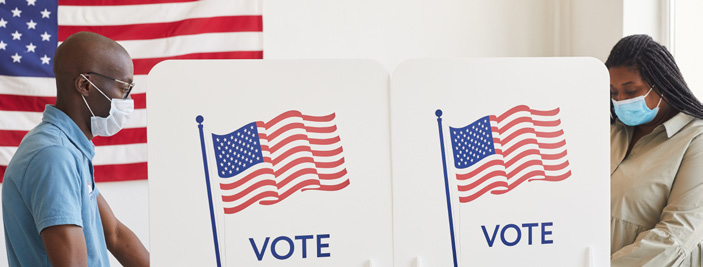
Contrary to Brennan Center claims, the Texas law endeavors to help voters with disabilities, creates a manual for poll watchers and actually expands hours for early voting. Its prohibition on 24-hour and drive-thru voting is a sensible safeguard against practices that openly invite voter fraud.
In a November 4, 2021 filing, the Biden Justice Department (DOJ) sued Texas over aspects of the new law, asking a federal judge to block implementation of certain provisions. The DOJ alleged that the Texas law violates the Civil Rights Act of 1964 in two ways: by limiting what sort of assistance can be given to voters who are disabled or unable to read, and by requiring that voters who request mail ballots but are unable to produce a driver’s license, a similar ID card or the last four numbers of a Social Security card to provide a statement that they don’t have that kind of identification.
“Conditioning the right to cast a mail ballot on a voter’s ability to recall and recite the identification number provided on an application for voter registration months or years ago will curtail fundamental voting rights without advancing any legitimate state interest,” DOJ said in a statement.9
The DOJ does not address how Texas election officials would be able to prevent helpers from unduly influencing voters requesting assistance, or how officials confronted with a voter with no ID could be assured that the individual is who he claims to be and is an eligible voter.
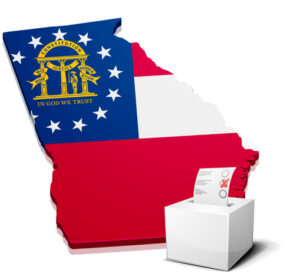
The “Election Integrity Act of 2021,” originally known as Georgia Senate Bill 202, was signed into law by Governor Brian Kemp (R) on March 25, 2021. Enacted in the wake of Joe Biden’s narrow win in the state and subsequent charges of irregularities in densely populated Fulton County, the new law is similar to its Texas counterpart. And, like the Texas law, the Georgia statute was embroiled in controversy that included Major League Baseball moving the annual All-Star Game from Atlanta to Denver, and Atlanta-based Coca-Cola, UPS and Delta Airlines condemning the law.
The Georgia law’s major provisions include:
• Mandating voter ID for absentee ballots;
• Limiting the use of ballot drop boxes;
• Expanding early in-person voting;
• Barring officials from sending out unsolicited absentee ballot request forms;
• Reducing the time people have to request an absentee ballot;
• Increasing voting stations or staff and equipment where there have been long lines;
• Making it a crime for outside groups to give free food or water to voters waiting in line;
• Giving the Georgia General Assembly greater control over voting administration;
• Shortening runoff elections.10
President Joe Biden dubbed Georgia’s election law “Jim Crow in the 21st century”11 and his Justice Department sued the state in June 2021, saying the statute was racially discriminatory. The DOJ claimed that the statute’s regulation of ballot drop boxes would have a disproportionate negative impact on black voters.
Georgia was one of many states that allowed the widespread use of drop boxes for mail-in ballots in the 2020 presidential election in response to the COVID-19 pandemic. Its new law codifies their use, mandating at least one box per county. However, it limits the number of additional drop boxes to either one per 100,000 registered voters or one per voting location, whichever is fewer. For the four counties at the core of the Atlanta metro area — Fulton, DeKalb, Cobb and Gwinnett — the number of drop boxes would be no greater than 23, down from 94 during the pandemic-influenced 2020 election year.
Unlike in the 2020 election, when drop boxes were open 24 hours a day, seven days a week in a variety of locations, Georgia’s new law requires drop boxes to be located indoors at early-voting locations and makes them only accessible when those polling places are open.12
Rather than being an instrument of “voter suppression” or having anything to do with Jim Crow, the new law attempts to normalize voting practices in a post-pandemic world.
While Georgia’s law allows mail-in ballots, it restricts their use, recognizing certain inherent problems associated with mass mail-in ballots: No one sees who votes, how ballots are transported, how they are stored and how they are counted. Mail-in ballots are distinct from traditional absentee ballots, with the latter generally requiring voter ID and signature validation. The absence of such requirements in many mail-in ballot procedures creates temptations that an integrity-based election system should seek to avoid. Safeguarding election integrity through prudent precautions to limit the possibility of fraud strengthens, rather than weakens, the electoral process.
The provisions of the Texas and Georgia election integrity laws, as well as those enacted by 17 other states in 2021,13 are far removed from the world of Jim Crow and in no way warrant the vituperative attacks to which they and their supporters were subjected.14
Provisions of the Texas and Georgia election integrity laws, as well as those enacted by 17 other states in 2021, are far removed from the world of Jim Crow and in no way warrant the vituperative attacks to which they and their supporters were subjected.
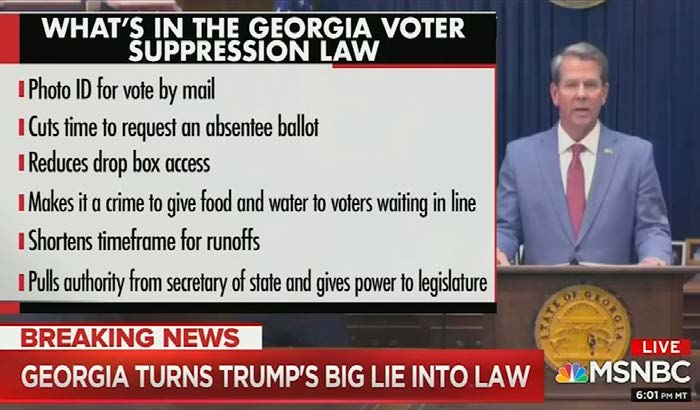
Could it be that behind the demonization of these and similar statutes adopted by other states — culminating in the attempted federal takeover of the nation’s voting procedures via congressional legislation — exists an effort to solidify and codify the entrenched interests of ruling elites, all in the name of protecting the rights of the America’s most vulnerable communities?
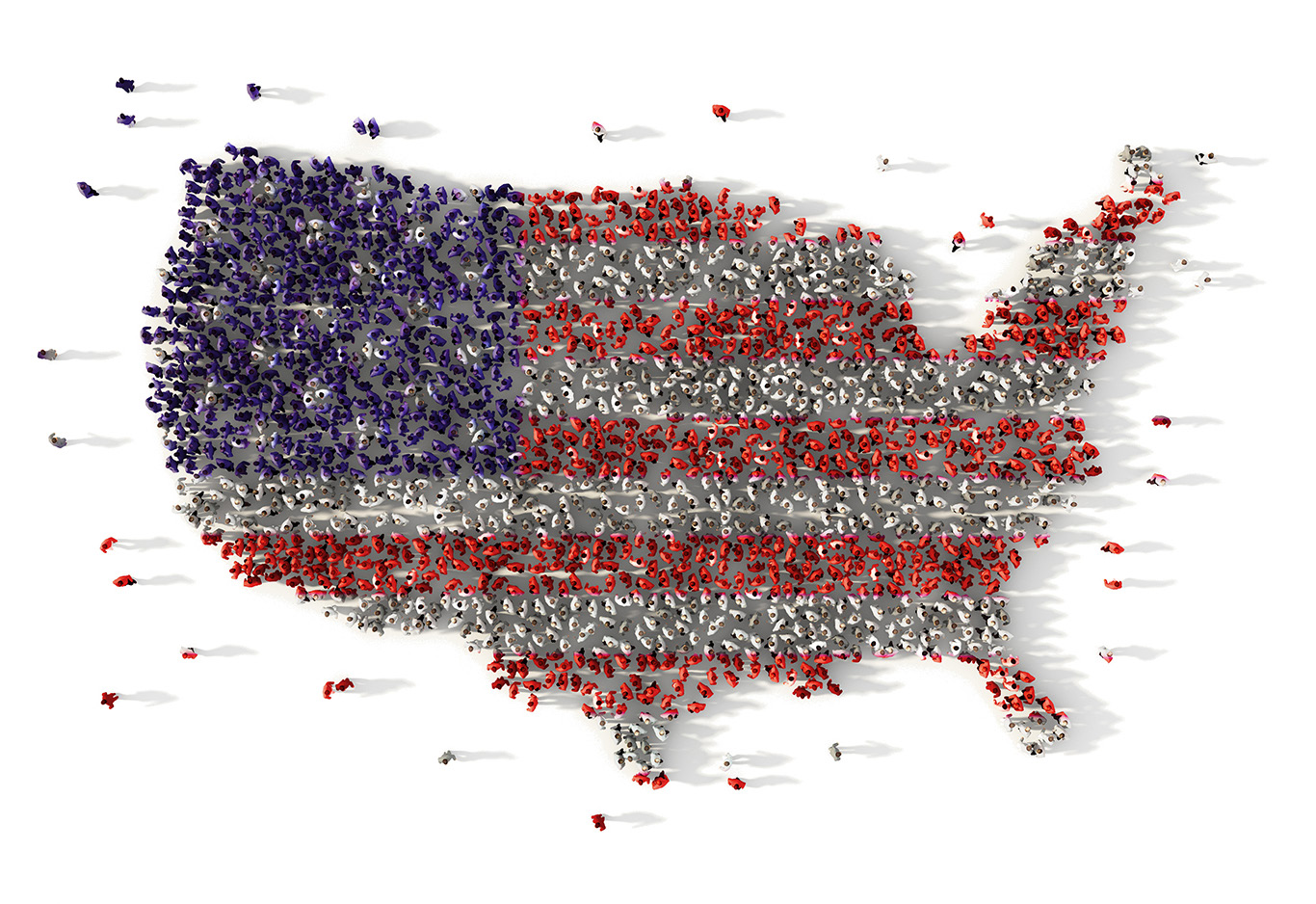
The Real Agenda Behind the
Attempted Federal Takeoverof Election Safeguards
Although the “For the People Act” and its slightly less radical successor, the “John R. Lewis Voting Rights Advancement Act,” failed to clear Senate filibusters, their content casts a revealing light on how those intent on transforming the electoral process see it as their solemn duty to strengthen their own hand.
The 800-page For the People Act would eviscerate state voter ID laws by allowing anyone to vote by simply signing a form saying they are who they claim they are. When combined with the mandate that states implement same-day voter registration, it means someone could walk into a polling place on Election Day, register to vote under whatever name the voter decides to disclose, cast a ballot and walk out. The bill does nothing to keep the same person from doing the same thing at multiple polling places.
Just as troubling, it would also force states to allow online voter registration, opening up the system to widespread fraud by hackers and cybercriminals. Under the bill, the ability of state officials to reject a voter registration application would be severely limited, even when the rejection is based on an official’s judgement that the individual is ineligible to vote.
The bill would also authorize the IRS to investigate and consider the political and policy positions of nonprofit organizations that apply for tax-exempt status. “This would enable the political party in control of the White House (and thus the IRS) to use the IRS to go after anyone criticizing them or their policies,” notes The Heritage Foundation’s Hans von Spakovsky.15
The Biden Administration’s willingness to use the Justice Department and the FBI to go after parents voicing unwelcome views on critical race theory and transgender policies at school board meetings across the country is merely a variation on the theme of turning the IRS loose on political opponents. Both show how far those in power are prepared to go to silence critics.
One of the bill’s most pernicious provisions, however, calls for onerous regulatory restrictions on political speech and activity, including online and policy-related speech by candidates, citizens, civic groups, unions, corporations and nonprofit organizations. “The disclosure provisions that apply to membership organizations like the NRA, Citizens for Life and other organizations that Americans of all political stripes join to multiply their voices on important issues will subject donors to intimidation and harassment,” notes von Spakovsky. “It is the modern equivalent of the donor-disclosure requirements that state governments tried to impose on civil rights organizations in the 1950s — requirements the Supreme Court declared unconstitutional.”16
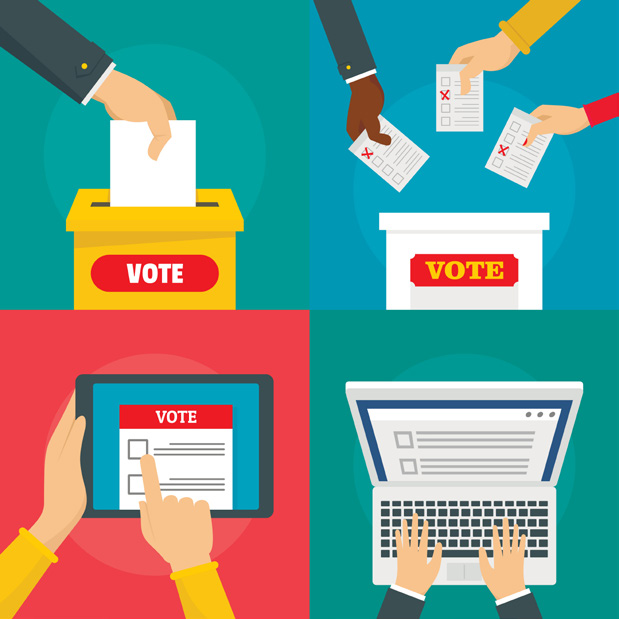
… on Election Day, a person could walk into a polling place, register to vote under whatever name the voter decides to disclose, cast a ballot and walk out. The bill does nothing to keep the same person from doing the same thing at multiple polling places.
A scaled-down version of the For the People Act, albeit one that is still 592 pages in length, was created to garner support from moderate Democrats for the unconstitutional federal takeover of election procedures.
The “Freedom to Vote Act,” later renamed the John R. Lewis Voting Rights Advancement Act of 2021, retains the same stringent disclosure provisions that curtail political speech and, as von Spakovsky points out, would subject those who donate to politically out-of-favor membership organizations to harassment and intimidation. Furthermore, it would set aside state photo ID laws by requiring states to accept a bank card, a utility bill or any other document containing the individual’s name that is issued by any government body.17
In the name of protecting the voting rights of minorities, supporters of the federal takeover of the voting process are seeking to codify through congressional legislation free speech restrictions more befitting of an incipient dictatorship than a functioning democracy. This is one, albeit very important, piece of a larger mosaic.
For example, the Biden Administration has emphasized a “whole-of-government” approach in attempting to transition the United States from fossil fuels to renewable energy. Under this model, government can craft the rules – or rig the game – in order to reach a desired outcome, and people’s choices will ultimately be limited to what the government deems to be in its best interest, not theirs. Those who doubt the wisdom of this agenda can simply be dismissed as “climate deniers.”
Similarly, during the height of the COVID-19 pandemic, we quickly learned that questioning the authority of the medical bureaucracy came at a stiff price. Anyone who questioned the wisdom of lockdowns or of vaccine and mask mandates, or who asked why certain existing preventive or prophylactic treatments were not being deployed to treat the disease, was accused of engaging in “misinformation.” Physicians and scientists who voiced unwanted opinions faced the threat of sanctions by state medical boards and medical associations and often found themselves censored on social media.
The creeping authoritarianism in matters of climate and COVID shares with the drive to overhaul and federalize state voting procedures the goal of fine-tuning the instruments of coercion to create a structure that serves and expands the power of those already in charge.
Here, too, powerful interests are involved, with no qualms over sullying the reputation of those standing in their way.
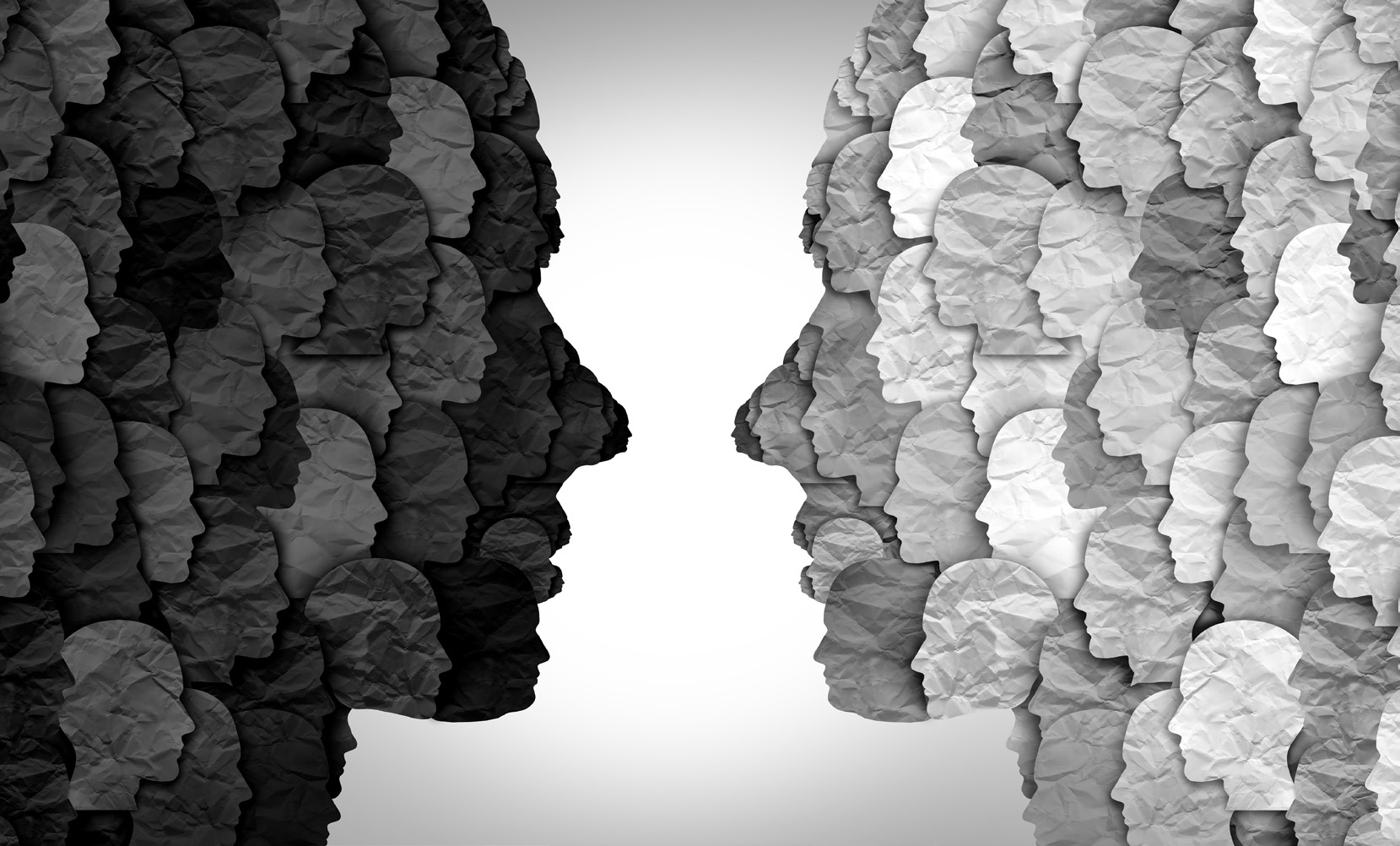
Fomenting Racial Division
for Political Ends
Michigan Governor Gretchen Whitmer (D), in vetoing three bills crafted to streamline and tighten the state’s voter ID laws, cast herself as a champion of minorities whose rights would be at peril if the legislation became law.
“These bills would disproportionately harm communities of color… Non-white voters were about five times more likely to lack access to ID on Election Day as white voters,” Whitmer wrote in a letter to the state Senate. “Voter restrictions that produce such a racially disparate impact must never become law in this state.”18
Michigan Senate Bill 303 would have prohibited the practice of allowing those who do not have identification to simply submit an affidavit in order to vote.
Senate Bill 304 would have required voters using provisional ballots to establish their identification within six days. And House Bill 5007 would have eliminated certain fees associated with getting an ID card. The fee is already waived for the elderly, those on welfare and people with disabilities.19
The vetoed legislation targeted Michigan’s Proposal 3, a proposed constitutional amendment allowing automatic and Election Day registration. “Proposal 3 made changes that weakened the integrity of our election system by allowing people to register and vote without ever being seen in-person,” said Senator Ruth Johnson (R), a former secretary of state. “It also allows people to register and vote on Election Day without showing an ID and with no real-time system to check if they are eligible or have voted in another location. In the 2020 election, over 20,000 people registered to vote in the 14 days before or on Election Day without presenting a Michigan driver’s license or personal identification card.”20
Whitmer’s vetoes, complete with racial inuendoes, may not be the last word, however. “A conservative ballot committee called ‘Secure MI Vote’ is circulating a petition to circumvent Whitmer and her veto power,” BizPac Review reported. “If the group is able to get 340,000 valid signatures within six months, the bills can be enacted by the GOP-controlled state legislature despite Whitmer’s pen.”21
Challenging state laws targeting voter fraud frequently involves playing the race card — but not always with success.
Challenging state laws targeting voter fraud frequently involves playing the race card — but not always with success.
A case in point is Brnovich v. Democratic National Committee, in which the U.S. Supreme Court upheld two Arizona voter integrity laws. One, H.B. 2023, passed by the Republican-controlled Legislature in 2016, criminalized the collection and delivery of another person’s ballot — so-called “ballot harvesting.”
The DNC challenged the law, arguing that it violated Section 2 of the Voting Rights Act of 1964 and the 15th Amendment to the U.S. Constitution because it was enacted with discriminatory intent. The other law, Arizona Revised Statute Title 16-122, barred same-day out-of-precinct voting. The DNC also challenged this election provision, claiming that it too violated Section 2 of the Voting Rights Act because it adversely and disparately affected the state’s Native American, Hispanic and black citizens. But in its July 2, 2021 ruling, the Supreme Court — in a 6-3 vote — rejected the DNC’s arguments and upheld both Arizona laws.22
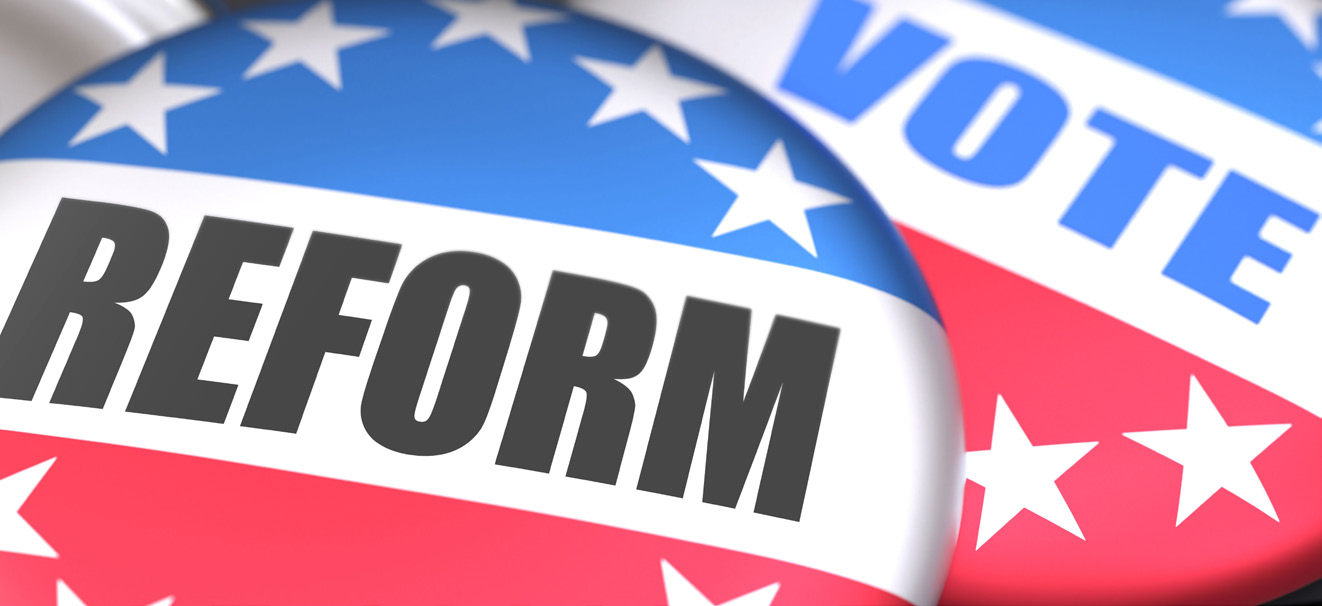
Ranked Choice Voting:
A Means of Rigging the System
Voter ID laws and other statutes enacted to reduce election fraud are often said to “disenfranchise” minority voters, who are portrayed as victims of such “voter suppression” schemes.
In truth, there is nothing racially or ethnically discriminatory about ensuring that voters are who they say they are and are eligible to cast a ballot in the jurisdiction where they are registered.
There is, however, a voting system that does disenfranchise voters — and does so by design and in the name of reform. That system is called “ranked choice voting,” and is currently in use in 42 jurisdictions in the United States, including two states (Alaska and Maine), several municipalities (including New York City, Minneapolis, San Francisco, Oakland and Cambridge) and 23 cities in Utah.23
Under ranked choice voting, people are instructed not to cast their ballot for a single candidate of their choice, but to vote for all candidates in descending order of their preference. If no single candidate has won a majority in the initial count, the candidate receiving the least number of first-choice votes is eliminated. People who voted for the losing candidate as their top choice then automatically have their votes changed to their second choice. The process continues as votes are re-tabulated and redistributed according to an algorithm over several rounds until someone receives a majority as the second, third or even fourth choice of voters.24
One could hardly imagine a more disenfranchising system than ranked choice voting. Under this convoluted system, a voter’s true preference could be tossed aside, with his or her vote going to the person’s fourth-ranked choice — someone the voter did not want to see elected to office. A voter could, of course, try to avoid this outcome by ranking only two preferences from a longer list of candidates. But if the top two preferences are eliminated during the first or second round of tabulations, the voter’s choices will not be considered at all in later rounds. Thus, the voter is disenfranchised.
Researchers are split on the impact of ranked choice voting on minorities. A University of Minnesota study that examined Minneapolis local elections in 2013 found that “white and affluent voters were more likely to use all three opportunities to rank their most preferred candidates compared to voters living in low-income neighborhoods and in communities of color.”25 But an analysis of ranked-choice elections across the country by the advocacy group Fair Vote found that voters of color rank more choices than white voters do.26
Ranked choice voting also doesn’t appear to increase the diversity of the candidates elected. The city of Eastpointe, Michigan held a ranked choice election for two city council seats to settle a complaint filed by the Obama Justice Department in 2017.
Under this convoluted system, a voter’s true preference could be tossed aside, with his or her vote going to the person’s fourth-ranked choice — someone the voter did not want to see elected to office.
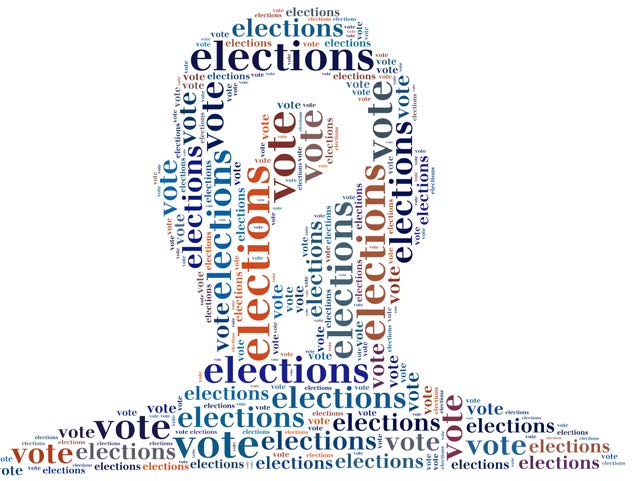
Expanding Voter Rights or
Feathering Their Own Political Nest?
Those attempting to roll back state election integrity laws by federalizing voting procedures claim they are doing so to combat voter suppression. While recent efforts have failed in Congress, they are still being fought in the courts and are likely to reappear legislatively in the near future. Attempts to eliminate voter ID are at the center of such schemes, but claims that voter ID requirements suppress minority votes do not hold up under scrutiny.
Georgia’s 2021 election integrity law was roundly criticized for targeting black and other minority voter turnout, even though the state’s in-person voter ID requirement actually went into effect in 2008.
Well over a decade of data clearly shows record increases in voter registration and turnout among black Americans and all other groups since the ID law went into effect.27 Similarly, Virginia — which has been requiring voter ID since 1993 — saw a surge in turnout for both Republican and Democratic gubernatorial candidates in its November 2021 statewide election, compared with turnout in 2017.28
Stricter voter ID requirements, especially for mail-in ballots, are a bone of contention in Florida’s S.B. 90, which was signed into law by Governor Ron DeSantis in April 2021. The NAACP and numerous other nonprofit organizations are suing Florida’s secretary of state and 67 elections supervisors over the law’s alleged harm to poor and minority voters who wish to vote by mail.29
In comments that were more revealing than it realized, the Brennan Center for Social Justice noted that the law “requires voters to provide a state ID number or the last four digits of a social security (sic) number to obtain a mail ballot, providing no alternative if a voter has neither identification number.”30
The Brennan Center then cited favorably a provision in the failed For the People Act that would “[a]llow voters to vote by mail without a voter ID number or other onerous ID requirements.”31
There is nothing onerous about providing proper identification when casting a ballot. But there is something patronizing and condescending in saying minority voters in 21st century America cannot comply with this most simple of requirements. This attitude reflects a perception of perpetual victimhood for black Americans and other minorities, believing them to be helpless and forever dependent upon the never-ending helping hand of government. Ruling elites on the left — most of them white — seek to institutionalize this dependency through the ballot box, seeing these so-called “disenfranchised voters” as a key element of a coalition that will keep them in power. Their ultimate goal is maintaining — and where possible, expanding — control, as clearly demonstrated by the provisions tucked into their “voting rights bills” that limit political expression.
In this world, black Americans and other minorities are little more than pawns in a larger game. Their loyalty is rewarded with the occasional high-profile political appointment and an assortment of handouts, both large and small.
Social mobility has no place in this world, much less dealing with high crime, family disintegration and failing schools. Rigging the voting system to the advantage of those doing the rigging will change none of this. Thomas Sowell saw the dangers in this many years ago when he wrote:
As long as millions of Americans vote on the basis of who gives them free stuff, look for their freedom — and all our freedom — to be eroded away, bit by bit.32
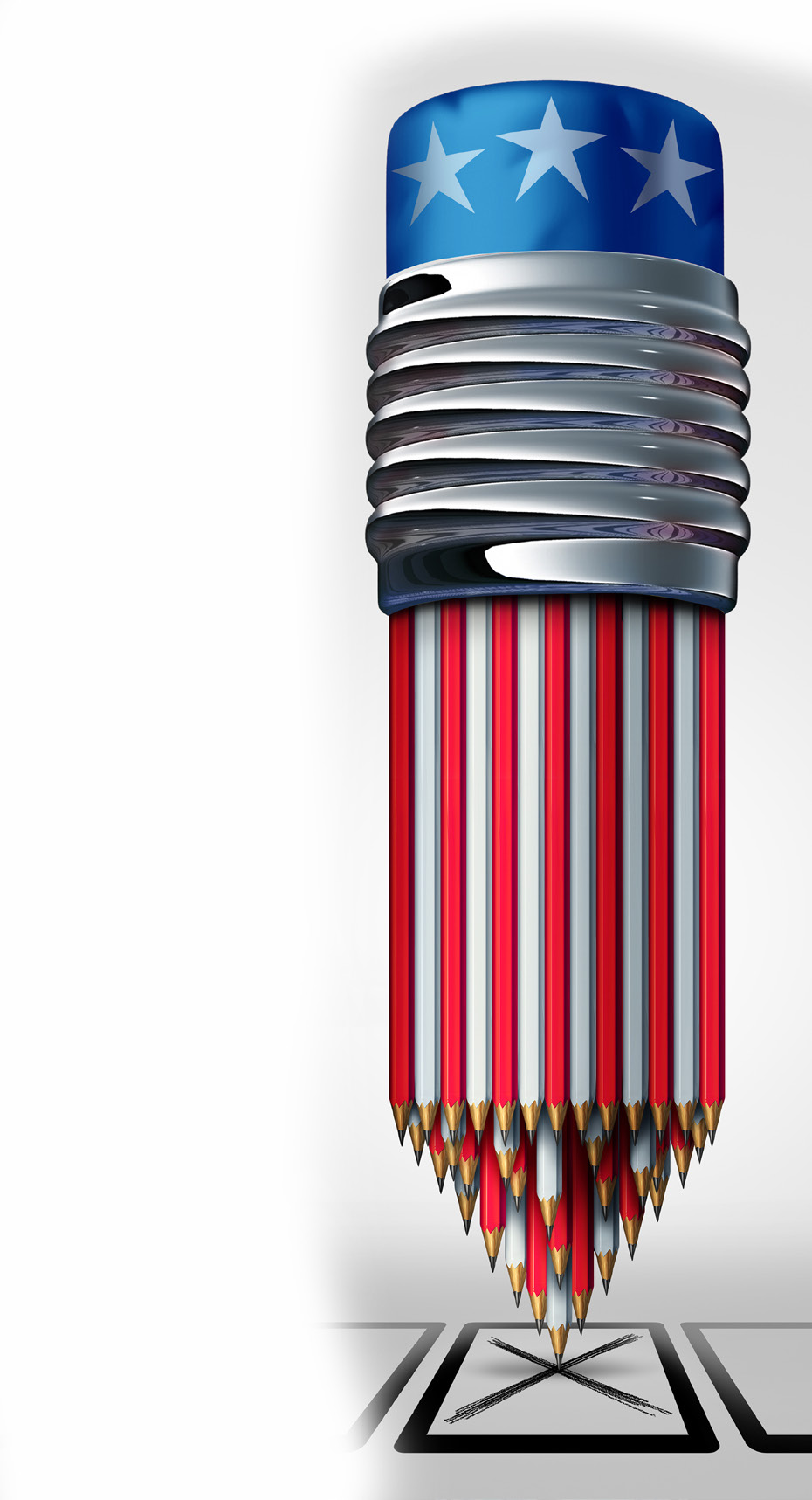
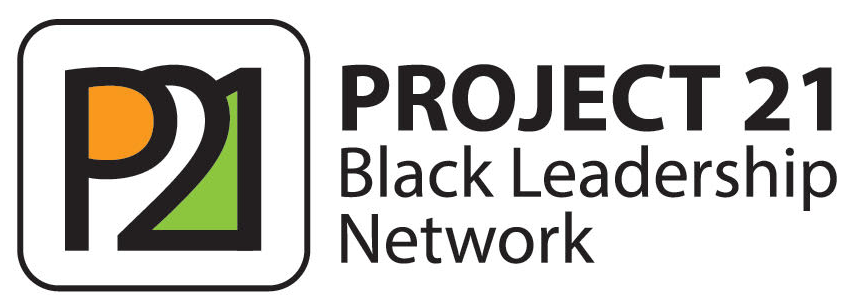
What We Believe
We believe that obtaining the right to vote and thus to become full participants in the political process was a historic achievement for black Americans, one that came after many a hard-fought battle. The unimpeded exercise of that right has forever changed the political landscape of the United States.
We believe that the self-anointed benefactors of black communities — many of them white — are now intent on manipulating the voting system in ways that will cement their own power, all in the name of fighting black voter suppression.
We believe that key provisions of the Biden Administration-backed voting rights legislation that failed to clear the Senate in January 2022 would actually do more harm to black voters than to the rest of the electorate:
- By mandating that states requiring voter ID accept a broad range of identification, the legislation would have encouraged the widespread creation of phony IDs, enabling activists to flood polling stations with “voters” whose real identity would be impossible to determine. Minority precincts have long been targeted by well-oiled political machines intent on driving up the vote to benefit candidates on the left. This practice dilutes the growing number of black votes that go to more conservative candidates. It also ignores the fact that fully 69 percent of black voters favor voter ID, according to a 2021 Rasmussen poll.33
- By allowing widespread use of ballot drop boxes, originally justified as a response to the COVID-19 pandemic, the bill would have enabled ballot harvesting on a massive scale. Unsupervised ballot boxes stuffed with ballots collected by well-organized ballot harvesters are an open invitation for election fraud. Community organizers, whether paid by groups funded by George Soros or paid through grants doled out by likeminded foundations or even government entities, have a disproportionate presence in black communities, where they serve the interests of those who want to make black Americans permanent wards of the state.
- By establishing nationwide vote-by-mail rules, the bill would have codified procedures bereft of the most elementary safeguards against fraud, including signature validation of voters. Once voters had opted to receive ballots by mail, they would have remained on a permanent vote-by-mail list, unless they asked to be removed or were no longer eligible to vote in a state. Just as many voter rolls are not regularly purged of deceased people, permanent mail-in-ballot rolls lend themselves to fraud. Fraudsters operating in minority communities, using ballots sent to addresses that may no longer be up to date, could easily mail in fraudulent ballots that distort local returns to the benefit of candidates seeking to cement the left’s grip on black voters.
- By allowing people to register to vote and cast ballots at the same time, as well as permitting them to register to vote online, the bill would have added another level of administrative chaos to a system stripped of serious voter ID requirements and plagued by mass mail-in ballots and unguarded ballot drop boxes. The bill would also have permitted voter registration forms to serve as absentee-ballot applications, thereby circumventing restrictions on mailing out absentee ballot applications to voters who hadn’t specifically requested them. Online registration would be an attractive target for hackers and, combined with the bill’s other lax registration/absentee ballot requirements, would further add to the election integrity challenges faced by minority communities.
- By requiring states to accept provisional ballots provided they are cast in the correct counties, but not in the correct precincts, the bill would have further undermined the integrity of the system by allowing people to disregard clearly stated instructions on where they are permitted to cast their votes. When combined with the bill’s other provisions, such as weakening voter ID requirements and allowing ballot harvesting, this provision had the potential to further disenfranchise conservative black voters by rigging the system to favor progressive groups intent on perpetuating the political status quo in black communities.
- By allowing convicted felons to vote in federal elections after they had been released from prison, the bill would have contributed to the toleration of lawlessness that has resulted in crime rates soaring nationwide and especially in predominantly black communities. Many of those committing the most violent crimes have been released either prematurely or are out on bond, the latter courtesy of prosecutors who have the luxury of living in safe neighborhoods, for now. Black Americans are the ones bearing the brunt of the current crime wave, and having long-fought-for voting rights restored to people who have shown a disregard for the rule of law is a further insult to law-abiding black Americans.
The objections raised here are not hypothetical considerations. In reality, these so-called voting rights provisions pushed by the ruling progressive class under the guise of combatting voter suppression are little more than expansions and refinements of voting fraud practices that have targeted minority communities for decades.
In 2012, for example, four county elections officers and city councilmen in Troy, NY pleaded guilty in a high-profile absentee-ballot fraud case. One of those who pleaded guilty told investigators, “The people who are targeted [in voter fraud cases] live in low-income housing and there is a sense that they are a lot less likely to ask questions.” Revealingly, he added, “What appears as a huge conspiracy to nonpolitical persons is really a normal political tactic.”34
Coinciding with this scandal, 38 others were charged as part of a sweeping investigation of voter fraud in Virginia. Many of what were politely termed “irregularities” were found in Richmond, the city with the largest minority population. In several jurisdictions, the scam involved left-wing voter advocacy groups asking convicted felons to register to vote even though their felon status prevented them from casting a legal ballot.35 Allowing convicted felons to vote was one of the goals of the so-called “voting rights” legislation that recently failed in Congress, and this example from a decade ago shows how the practice can be used to skew results in predominantly black precincts. When those who are not legally eligible to vote cast ballots, they dilute the votes of legitimate voters.
We believe voter ID laws are necessary to ensure the integrity of our elections and to ensure black Americans have confidence in them. “I don’t believe black voters are underrepresented, as some self-proclaimed civil rights advocates suggest; they are misrepresented,” said Donna Jackson, Project 21’s director of membership development. “The lack of voter integrity weakens our true voice and causes many of us to become disillusioned.”36
A new law in New York City reveals yet another effort to dilute black voting strength: allowing noncitizens, including immigrants who are in the country illegally and under temporary protection such as the DACA program, to cast ballots in citywide elections. In a February 2 lawsuit filed on behalf of four black residents, the Public Interest Legal Foundation (PILF) noted that voting in New York was already polarized along racial lines, and adding hundreds of thousands of foreign citizens to the pool — most of them Asian or Hispanic — will further undermine black political power in the city.
“They explicitly used race as a factor of demarking the voter groups that they wanted to give this privilege to, and that is a direct violation of the 15th Amendment,” said former Ohio Secretary of State Ken Blackwell, a PILF board member.37
The 15th Amendment to the Constitution states that “the right of citizens of the United States to vote shall not be denied or abridged by the United States or by any State on account of race, color, or previous condition of servitude.”
We believe that if the courts allow the New York law to stand, it could be replicated — in the name of voter inclusiveness — by other jurisdictions, putting black voters at a further disadvantage courtesy of the very political forces pretending to be their benefactors.
Finally, we believe that the left’s obsession with watering down, or completely eliminating, voter ID requirements doesn’t just enable Election Day fraud in black communities. The practice also illuminates the left’s rank hypocrisy.
California, New York, Oregon and the District of Columbia do not have voter ID requirements, yet during the COVID-19 pandemic, all of these jurisdictions, in one form or another, mandated that people show proof of vaccination (also known as vaccine passports) before being admitted to certain public buildings.38
If minority voters are supposedly disenfranchised by “racist” voter ID requirements, why aren’t they also protected from equally discriminatory vaccine passports? In truth, the only people benefitting from vaccine passports and the lack of voter ID requirements are those already in power, whose twin goals of dependency and control allow them to pursue contradictory policies simultaneously without the blink of an eye.
The left — with its iron grip on K-12 schools, universities, regulatory bureaucracies, the media (social and traditional), the entertainment industry, many corporate boardrooms and a host of other institutions — has achieved a level of societal dominance it is unwilling to share with people holding opposing views.
Trumpeting phony voting rights bills, and seeking to quash state laws aimed at reducing fraud at the ballot box and increasing confidence in our elections, is a cynical ploy undertaken by people with no real connection to black communities and no interest in correcting the problems their policies have created.
As James Burnham reminded us, the powerful often use “high-minded words… to deceive us and lead us by easy routes to the sacrifice of our own interests and dignity in the service of the mighty.”
Black America should not fall for this deception.
For a complete list of participants in Project 21, click here.
REFERENCES
1 Francis P. Sempa, Only Power Restrains Power: James Burnham’s ‘The Machiavellians’ at Seventy, The Russell Kirk Center (Nov. 3, 2013), available at https://kirkcenter.org/reviews/only-power-restrains-power/ (last accessed Mar. 10, 2022).
2 Edward Welch, A Machiavellian Reality Check, Intellectual Takeout (Aug. 27, 2021), available at https://www.intellectualtakeout.org/a-machiavellian-reality-check/ (last accessed Mar. 10, 2022).
3 HR1: The For the People Act, Congressman John Sarbanes, available at https://sarbanes.house.gov/issues/hr-1-the-for-the-people-act (last accessed Mar. 10, 2022).
4 Freedom to Vote Act, Common Cause, available at https://www.commoncause.org/our-work/constitution-courts-and-democracy-issues/freedom-to-vote-act/ (last accessed Mar. 10, 2022).
5 Wendy R. Weiser, Daniel I. Weiner and Dominique Erney, Congress Must Pass the For the People Act, Brennan Center for Justice (Mar. 18, 2021), available at https://www.brennancenter.org/our-work/policy-solutions/congress-must-pass-people-act (last accessed Mar. 10, 2022).
6 Jamie Ross, Biden: MLB Should Pull Georgia All-Star Game over ‘Jim Crow on Steroids’ Voting Laws, (Apr. 1, 2021), available at https://www.thedailybeast.com/biden-says-mlb-should-pull-georgia-all-star-game-over-jim-crow-on-steroids-voting-laws (last accessed Mar. 10, 2022).
7 TPPF: Election Reform Expands Access and Makes Voting Secure, Texas Public Policy Foundation (July 21, 2021), available at https://www.texaspolicy.com/press/tppf-election-reform-expands-access-and-makes-voting-secure (last accessed Mar. 10, 2022).
8 Michael Waldman, We’re Suing Texas Over Its Cruel Voting Law, Brennan Center for Justice (Sept. 8, 2021), available at https://www.brennancenter.org/our-work/analysis-opinion/were-suing-texas-over-its-cruel-voting-law (last accessed Mar. 10, 2022).
9 Sadie Gurman and Alexa Corse, “Justice Department Sues Texas Over Its New Voting Law,” Wall Street Journal (Nov. 4, 2021), available at https://www.wsj.com/articles/justice-department-sues-texas-over-its-new-voting-law-11636060990 (last accessed Mar. 10, 2022).
10 Memo: Georgia Election Integrity Act of 2021, Foundation for Government Accountability (Apr. 2021), available at https://thefga.org/wp-content/uploads/2021/04/Georgia_election_integrity_act.pdf (last accessed Mar. 10, 2022).
11 Maegan Vazquez and Kate Sullivan, Biden Calls Georgia Law ‘Jim Crow in the 21st Century’ and Says Justice Department is ‘Taking a Look,’ CNN (Mar. 26, 2021), available at https://www.cnn.com/2021/03/26/politics/joe-biden-georgia-voting-rights-bill/index.html (last accessed Mar. 10, 2022).
12 Mark Niesse, “How Georgia’s Voting Law Works,” Atlanta Journal-Constitution (May 6, 2021), available at https://www.ajc.com/politics/how-georgias-new-voting-law-works/GF6PLR44PNESPKR5FXCBE7VEOY/ (last accessed Mar. 10, 2022).
13 Nick Corasaniti, “Voting Battles of 2022 Take Shape as GOP Crafts New Elections Bills,” The New York Times (Dec. 4, 2021), available at https://www.nytimes.com/2021/12/04/us/politics/gop-voting-rights-democrats.html (last accessed Mar. 10, 2022).
14 Fred Lucas, “18 States Passed Election Reforms this Year. Here’s What They Did,” The Daily Signal (Sept. 9, 2021), available at https://www.dailysignal.com/2021/09/09/18-states-passed-election-reforms-this-year-heres-what-they-did/ (last accessed Mar. 10, 2022).
15 Hans A. von Spakovsky, H.R. 1/For the People Act Imperils Free and Fair Elections. Here are the Worst 8 Parts, The Heritage Foundation (Mar. 19, 2021), available at https://www.heritage.org/election-integrity/commentary/hr-1for-the-people-act-imperils-free-and-fair-elections-here-are-the (last accessed Mar. 10, 2022).
16 Ibid.
17 H.R. 4: John R. Lewis Voting Rights Advancement Act of 2021, Congress.gov, available at https://www.congress.gov/bill/117th-congress/house-bill/4 (last accessed Mar. 10, 2022).
18 Terresa Monroe-Hamilton, “Gretchen Whitmer Vetoes Three Voter Integrity Bills Aimed at Tightening Voter ID Laws,” Bizpac Review (Nov. 1, 2021), available at https://www.bizpacreview.com/2021/11/01/gretchen-whitmer-vetoes-three-voter-integrity-bills-aimed-at-tightening-voter-id-laws-1156873/ (last accessed Mar. 10, 2022).
19 Ibid.
20 Ibid.
21 Ibid.
22 Brnovich v. Democratic National Committee, SCOTUSblog, available at https://www.scotusblog.com/case-files/cases/brnovich-v-democratic-national-committee/ (last accessed Mar. 10, 2022).
23 Where Ranked Choice Voting is Used, Fair Vote, available at https://www.fairvote.org/where_is_ranked_choice_voting_used (last accessed Mar. 10, 2022).
24 Hans von Spakovsky and J. Adams, Ranked Choice Voting is a Bad Choice, The Heritage Foundation (Aug. 23, 2019), available at https://www.heritage.org/election-integrity/report/ranked-choice-voting-bad-choice (last accessed Mar. 10, 2022).
25 Sonja Hutson, “Researchers Are Split on Whether Ranked-Choice Helps or Hurts Minority Voters,” KUER (May 26, 2021), available at https://www.kuer.org/politics-government/2021-05-26/researchers-are-split-on-whether-ranked-choice-helps-or-hurts-minority-voters (last accessed Mar. 10, 2022).
26 Ibid.
27 Virginia Allen, “New Book Explains ‘How the Left Changed the Way You Vote,’” The Daily Signal (Nov. 3, 2021), available at https://www.dailysignal.com/2021/11/03/new-book-explains-how-the-left-changed-the-way-you-vote/ (last accessed Mar. 10, 2022).
28 Ted Mellnik, Laris Karklis, and Adrian Blanco, “How Youngkin Shifted the Vote Toward Republicans Across Virginia,” The Washington Post (Nov. 3, 2021), available at https://www.washingtonpost.com/politics/2021/11/03/virginia-votes-shift-democrats-republicans/ (last accessed Mar. 10, 2022).
29 LDF Files Lawsuit Against State of Florida Over Suppressive Voting Law, NAACP Legal Defense and Educational Fund, Inc. (May 6, 2021), available at https://www.naacpldf.org/press-release/ldf-files-lawsuit-against-the-state-of-florida-over-suppressive-voting-law/ (last accessed Mar. 10, 2022).
30 Eliza Sweren-Becker, Florida Enacts Sweeping Voter Suppression Law, Brennan Center for Justice (May 6, 2021), available at https://www.brennancenter.org/our-work/analysis-opinion/florida-enacts-sweeping-voter-suppression-law (last accessed Mar. 10, 2022).
31 Ibid.
32 Dr. Thomas Sowell, “Freedom Is Not Free,” Creators Syndicate, Inc. (Mar. 4, 2014), available at https://www.creators.com/read/thomas-sowell/03/14/freedom-is-not-free (last accessed Mar. 10, 2022).
33 “75% Support Voter ID Laws,” Rasmussen Reports (Mar. 17, 2021), available at https://www.rasmussenreports.com/public_content/lifestyle/general_lifestyle/march_2021/75_support_voter_id_laws (last accessed Mar. 10, 2022).
34 Horace Cooper, Victims of Voter Fraud: Poor and Disadvantaged Are Most Likely to Have Their Vote Stolen, National Center for Public Policy Research (Aug. 1, 2012), available at https://nationalcenter.org/project21/2012/08/01/victims-of-voter-fraud-poor-and-disadvantaged-are-most-likely-to-have-their-vote-stolen-by-horace-cooper/ (last accessed Mar. 10, 2022).
35 Ibid.
36 Give Blacks Equal Voting Rights: Put an End to Schemes that Dilute the Black Vote, Black Leaders Say, National Center for Public Policy Research (July 3, 2018), available at https://nationalcenter.org/project21/2018/07/03/give-blacks-equal-voting-rights-put-an-end-to-schemes-that-dilute-the-black-vote-black-leaders-say/ (last accessed Mar. 10, 2022).
37 Tyler O’Neil, “Black Voters Sue NYC Over Noncitizen Voting, Claim it Violates Civil Rights Law,” Fox News (Feb. 3, 2022), available at https://www.foxnews.com/politics/black-voters-sue-nyc-noncitizen-voting-claim-violates-civil-rights-law (last accessed Mar. 10, 2022).
38 State Government Policies About Vaccine Requirements (Vaccine Passports), Ballotpedia (Mar. 9, 2022), available at https://ballotpedia.org/State_government_policies_about_vaccine_requirements_(vaccine_passports) (last accessed Mar. 10, 2022).




